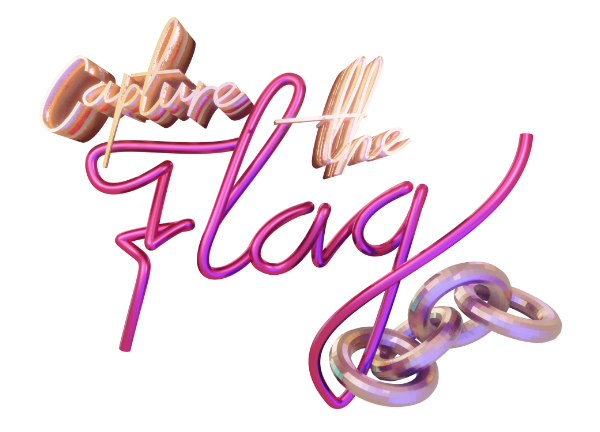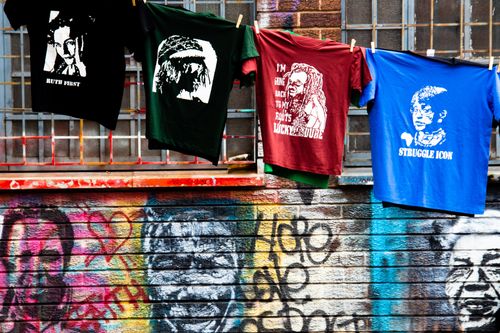According to a 2017 World Bank report, there are approximately 1.7 billion unbanked people in the world today.
Not having access to this foundational financial asset is the primary factor that hinders those from accomplishing various everyday tasks.
Because they have no means of participating in the financial system, they are unable to save money safely, which causes a host of problems on a personal and societal level.
Under the current financial system, access to a bank account is the very first step to economic development, as it enables individuals to keep their money secure. That said, the most crucial function of a bank account involves being the gateway to other financial services.
Systemic problems in the banking sector are largely to blame for individuals' inability to access financial services. Since banks are for-profit, centralized institutions, there is a financial incentive to incorporate all individuals who can afford their services, to the exclusion of those who cannot.

Removal of blockers by DeFi
Root causes that block access
- Lack of trust in the banking system
- Absence of access to banks in the area / cell phone
- A minimum balance fee
- Inability to obtain a government-issued identification card
What's more, the above four reasons are still valid in developing countries. For the majority of individuals in need of funding (e.g., a loan), friends or family usually provide the money because the banks' requirements are unattainable.
Decentralized Finance is establishing its reputation as the best solution to enable anybody to have 24/7 access to a DeFi Wallet.
While traditional finance has erected substantial barriers to entry (e.g., costly fee structures and the requirement for identity confirmation), DeFi is accessible to anyone with a capable smartphone. As DeFi proliferates, unbanked people can access services that would normally have required them to open a bank account.
Cryptocurrencies are literally borderless, and this is one of the reasons why they can help the unbanked.
Unlike the traditional financial system, DeFi can be used by anybody, anywhere, anytime - and often without requiring KYC and/or a bank account. By establishing transparent rules that smart contracts comply with, this opens up new opportunities for individuals who are unbanked. DeFi products can not only easily deposit and save money for future use, but also substitute for expensive international wire transfers.
Individuals on decentralized financial platforms can borrow or lend money from others, trade cryptocurrencies, hedge against risk, and earn streams of income on their savings accounts.
Such products are eliminating intermediaries, allowing individuals to be in control of personal finances, as well as creating powerful new incentive models for stakeholders to reward those who use them and to empower communities.
Such products are eliminating intermediaries, allowing individuals to be in control of personal finances, as well as creating powerful new incentive models for stakeholders to reward those who use them and to empower communities. Through its use of cryptocurrencies and digital assets, DeFi departs from fiat currencies and the centralized nature of fiscal and monetary policy, creating an entire concurrent ecosystem of finance.
- Banking: The retention of convenience in day-to-day banking transactions is critically important to the unbanking of the banked. Indeed, while earlier versions of cryptocurrency wallets had required a high amount of technological understanding, now many are able to send and accept funds with ease using straightforward interfaces. A number of DeFi companies offer debit cards that work at any retailer that accepts those.
- Stablecoins: For bank customers, transitioning to cryptocurrencies can be disheartening in the light of volatility. Still, Stablecoins are designed to dispel these fears by virtually eliminating the risk of sudden price fluctuations. Stablecoins are backed up with collateral (fiat, cryptocurrencies, as well as commodities) to provide price steadiness.
- Derivatives: A derivative is a contract made between two or more parties whose underlying agreed financial asset, such as a stock, bond, commodity, interest rate or currency, is the underlying asset for which the value is based. Derived instruments are a crucial part of any mature market, as they provide investors with the opportunity to take long and short positions, resulting in greater market stability and diversification. Such solutions can provide exposure to the cryptocurrency asset class without requiring investors to hold actual crypto assets. For banking clients, DeFi derivatives are a viable alternative to financial instruments found in a conventional market.
- Borrowing and lending: the same way bank customers have access to loan products and can save their money to gain interest, the DeFi space equally supports borrowing and lending efforts. Borrowers can obtain loans in cryptocurrency or fiat by providing collateral to DeFi platforms. Conversely, lenders can deposit their cryptocurrency on a DeFi platform and earn interest returns that are often significantly superior to the returns offered by traditional banks.

Cryptocurrency as legal tender
Earlier this year in El Salvador, President Nayib Bukele enacted a law that makes Bitcoin a legal currency, the very first country to have such a law. Indeed, he even proposed that crypto-mining - the process by which new coins are created - be run using volcanoes as a green energy resource.
El Salvador is a very low-income country, 70% of its citizens are unbanked, and about a quarter of El Salvador's people live in the United States, where they send large amounts of remittances to their families at home. An estimated 23% of the country's gross domestic product (GDP) is accounted for by these payments, with almost $6 billion sent back during the last year on its own.
In years to come, such payments potentially would be made with cryptocurrencies, and the fees would decrease dramatically, resulting in less money squandered for those in need.
Not surprisingly, the crypto community hailed the proclamation. A sovereign nation's decision to adopt Bitcoin as legal tender is considered an endorsement of several of the digital currency's most important characteristics: Bitcoin is globally transferable, cryptographically secure and tamper-proof. Furthermore, with a fixed cap of 21 million Bitcoin, the digital currency is not subject to inflationary pressures or devaluation.
Bitcoin-phobic critics were disparaging about the announcement. While some reiterated that Bitcoin has not proven to be a valid means of payment and that the legislative assembly's decision to pass the law nationwide without pilot testing or technical analysis was reckless. Others decried Bitcoin as a volatile and speculative asset and stated that the decision was fraught with macroeconomic, financial, and legal implications.
Last but not least - and this is crucial - the transition to cryptocurrencies ought to be a free decision by the individuals themselves, not a forced decision by a president. This idea is a quintessential value of all cryptocurrencies - an attribute of its decentralized nature. Still, the highly centralized nature of President Bukele's actions seems quite logical, considering that he is said to be on his way to becoming "Latin America's first millennial dictator." In a country that is said to have serious human rights problems - Human Rights Watch reports that "girls and women accused of having abortions have been imprisoned for murder and aggravated homicide" and that "LGBT persons face discrimination and violence without effective state protection" - this kind of "progressive" legislation begs an important question: Was it really enacted for the benefit of Salvadorans?
From a monetary perspective, the introduction of Bitcoin as legal tender also entails significant legal and financial implications. The major conundrum to be asked here is whether this decision will result in the recognition of Bitcoin as a foreign currency. And if so, will Bitcoin transactions then be exposed to a financial transaction tax? And given that the vast majority of jurisdictions classify Bitcoin as an asset rather than a currency, the answer seems self-evident. Also, as the World Bank has already declined to support El Salvador's request for assistance in transitioning to the use of Bitcoin as legal tender.
I’ve just sent the #BitcoinLaw to Congress 🇸🇻 pic.twitter.com/DljnxsXlyt
— Nayib Bukele 🇸🇻 (@nayibbukele) June 9, 2021
Global banking for the Unbanked
PlasmaPay (PPAY) and Plasma.Finance has launched a platform that is designed to be an "all-in-one bank account replacement for the modern age." With no physical infrastructure to operate and no staff to pay, PlasmaPay is able to offer a variety of services to unbanked people - almost all of them free of charge.
PlasmaPay's individual accounts, operating in over 150 countries, give users straightforward entry and exit options for cryptocurrencies. So they can buy, sell, and trade cryptocurrencies and fiat currencies. Plus, they can send payments to and from others for virtually nothing - making them a tremendous threat to the nearly trillion dollar global remittance market.
Investment opportunities for underserved consumers
In Southeast Asia by itself, there are approximately 300 million individuals affiliated with the urban working poor. Throughout the world, cryptocurrencies are perhaps most well-known for their wealth-building capabilities. However, for underserved communities, there is simply no simple method of benefiting from them. Merely buying cryptocurrencies is beyond the means of so many, and even more do not have the disposable income to make the effort even when they could. Moreover, they tend to live in regions that remain both corrupt and economically deprived.
ARCC.one harnesses an innovative mechanism that its creators call "Social Proof of Work." This is essentially a system that generates tokens as users submit reports of actual corruption in their countries. In reality, the users can report on things like floods and power outages, often the result of mismanaged infrastructure funds. They will be paid for their contribution in ARCC tokens, which they can reinvest as it suits them. This is a platform that strives to improve real-world circumstances on behalf of its users, while also helping them build wealth.
Further information on the "International Blockchain Monetary Reserve".
Reliable financial data for the unbanked
In broad terms, most African nations are experiencing difficulties in providing adequate and affordable financial services to individuals who are unbanked and underserved. This has led to the growth of mobile money and mobile banking services across the entire continent as a result of people looking for viable solutions to their financial service needs.
Pngme is beginning to tap into the burgeoning mobile money market in Africa, which was launched in 2007 with M-Pesa. Launched in Kenya, M-Pesa is a mobile banking service that allows users to store and transfer money via their cell phones and is primarily targeted at a large number of unbanked citizens in the sub-Saharan region.
Pngme gathers financial data from mobile phone users and shares it with banks and financial institutions. The company has recognized that consumers are becoming more conscious of their finances and are demanding increased data. As a result, Pngme has been focusing on consumers who do not have data that enables financial service providers to determine their credit profile.
The startup has reported 300% month-over-month growth in the Q4 of 2020. By 2022, the startup has projected that it expects the number of user data profiles created on its platform to reach several million.
Recently, Pngme - as an open API solutions provider - committed to the non-profit Open Banking Nigeria initiative to develop a set of open API standards for the Nigerian financial services industry.
Nigeria's central bank recently announced a goal of achieving financial inclusion for 95% of the population by 2024. Open Banking Nigeria is committed to working with technology providers such as Pngme to achieve this goal by establishing and maintaining API standards to ensure that banks and consumers receive the products and services they need.
Pngme's API and toolkit will assist in establishing test environments that will set implementation standards for Nigeria's expanding financial ecosystem. As a member of Open Banking Nigeria, Pngme will play an integral role in designing sandbox environments, data types, authentication, extension types, and other testing tools. Establishing certifications for API testing will be critical to spurring innovation that drives financial inclusion.
Collateral-free microloans
The lack of access to capital - especially in developing countries - means that there is insufficient financial scope to meet fundamental needs or improve the economic situation. And even when access to credit is possible, it often comes with onerous terms and usurious interest rates.
Egoras is dedicated to providing a crypto-based platform for microloans to tackle global economic inequality. Its system uses a unique combination of two crypto tokens that control lending and management, respectively. The EGS token is a value-stabilized cryptocurrency that holds parity with the USD. As for the second, the EGR token, is the governance and staking token of its platform. As such, it allows holders to play a role in the loan approval process in exchange for a generous 12% APY return on their investment.
The truly unique thing about Egoras, however, is the fact that it offers its microloans without requiring collateral from its borrowers. In other words, the funds are available to the widest possible group of borrowers, removing one of the most significant barriers to accessing credit in the developing world.
Final Thoughts
For unbanked individuals, DeFi solutions allow bypassing the barriers imposed by traditional financial service providers and interact with finance on a global scale. DeFi is breaking the existing framework and instead leveraging decentralized technology and governance to offer peer-to-peer (P2P) financial services that not only improve upon current standards, but also create entirely new financial instruments. The resulting platforms without intermediaries offer more autonomy and greater transparency, they are nascent but can already rival established FinTech or traditional financial service products.
Recommended Readings
- World Mobile & Cardano – connecting the unconnected, banking the unbanked, YouTube (IOHK)
- The Little Data Book on Financial Inclusion 2018, World Bank Group
- Emerging technologies can change the African financial landscape, Cointelegraph
The website and the information contained therein are not intended to be a source of advice or credit analysis with respect to the material presented, and the information and/or documents contained on this website do not constitute investment advice.

